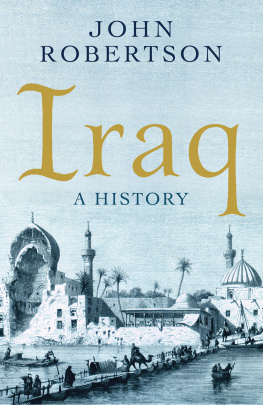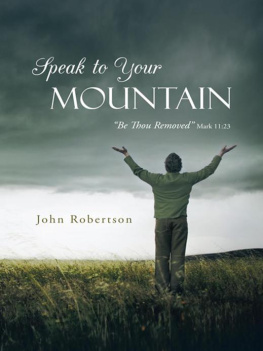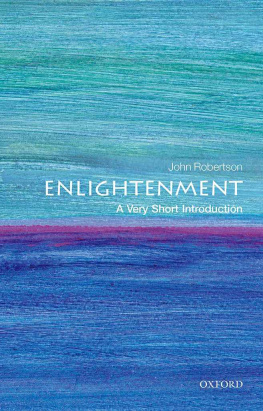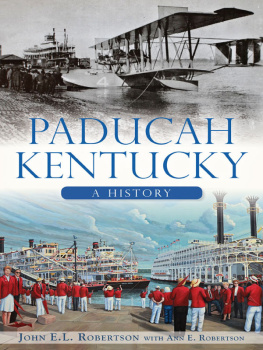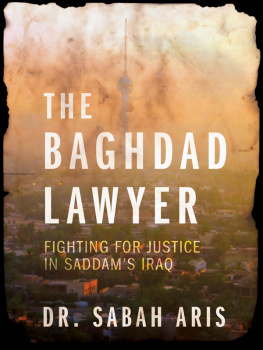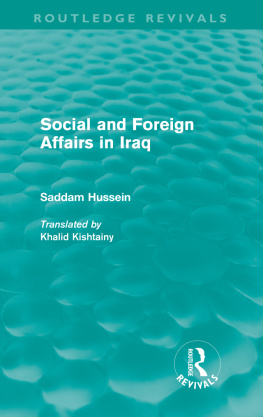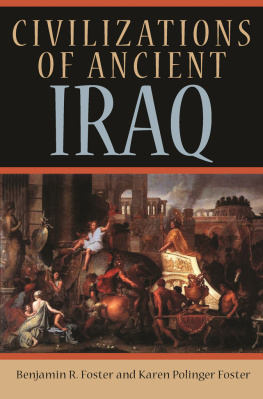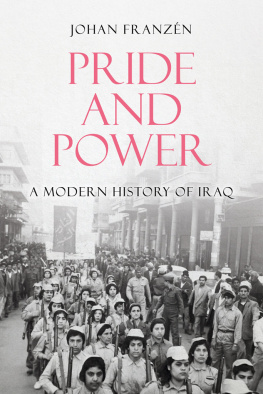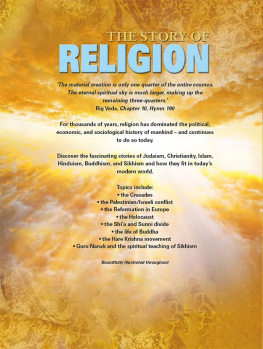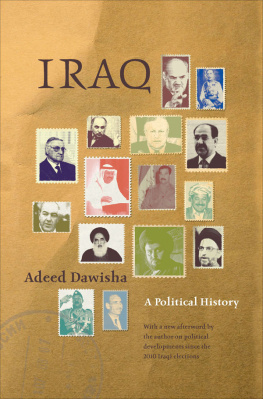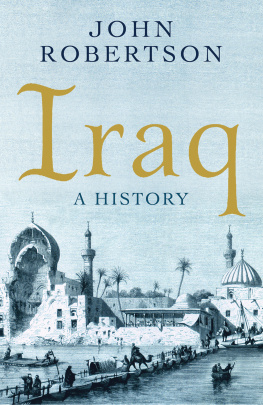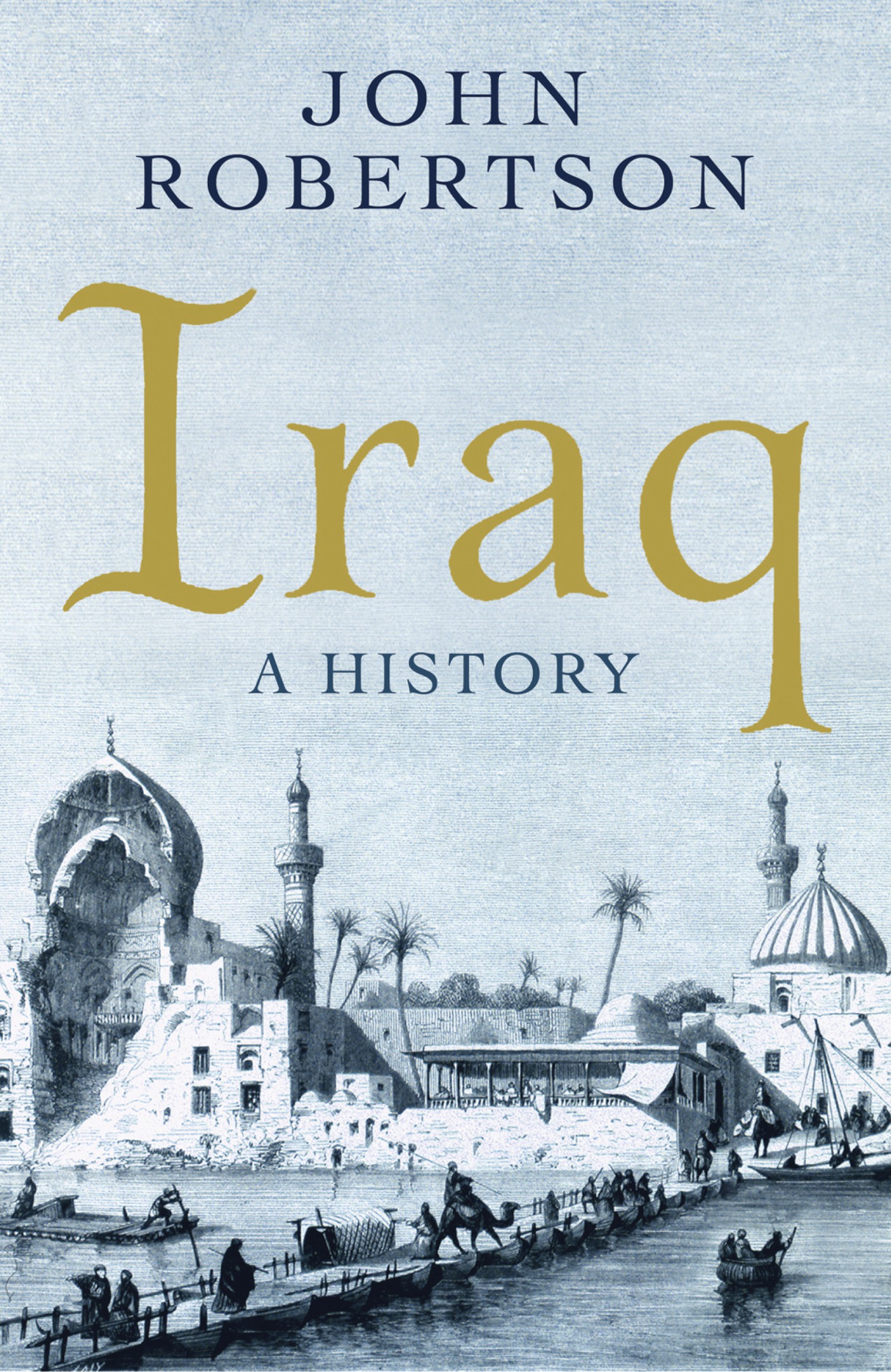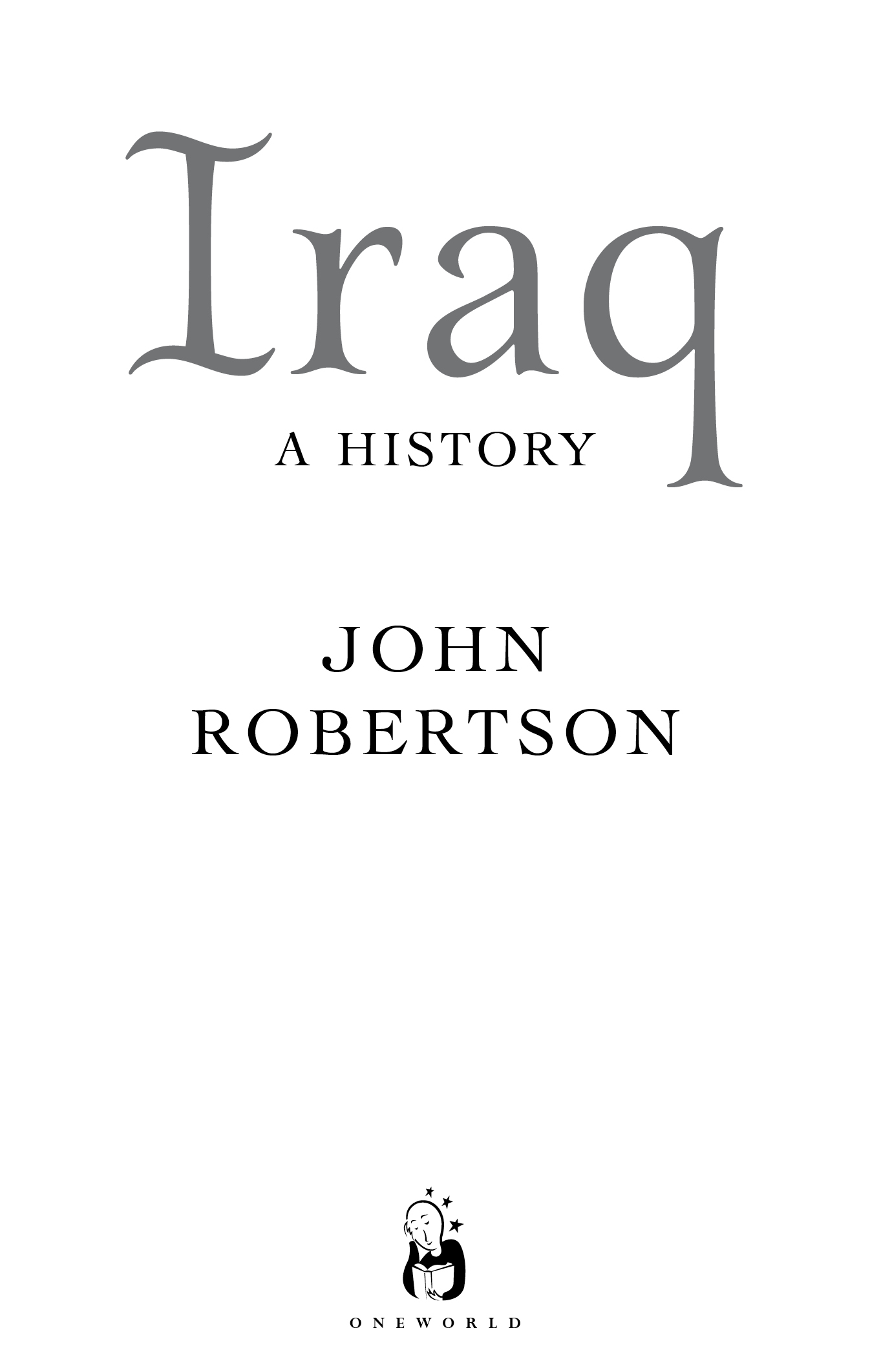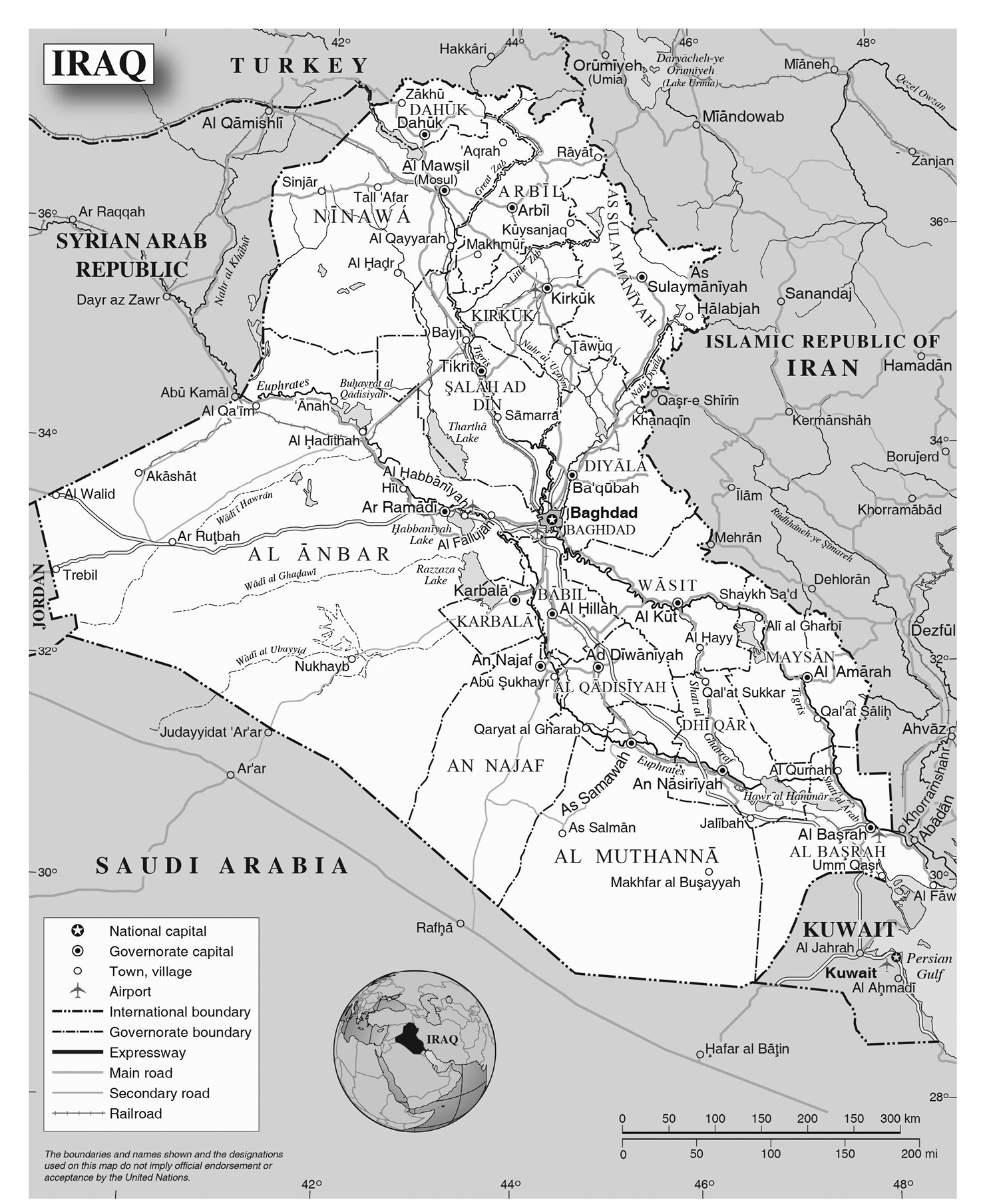A Oneworld Book
First published by Oneworld Publications, 2015
The eBook edition published by Oneworld Publications, 2015
Copyright John Robertson 2015
The moral right of John Robertson to be identified as the Author of this work has been asserted by him in accordance with the Copyright, Designs, and Patents Act 1988
All rights reserved
Copyright under Berne Convention
A CIP record for this title is available from the British Library
ISBN 978-1-85168-586-8
ISBN 978-1-78074-419-3 (eBook)
Typesetting and eBook by Tetragon, London
Oneworld Publications
10 Bloomsbury Street
London WC1B 3SR
England
Map 1. Iraq (courtesy, United Nations)
Foreword
I started this project not long after a coalition of military forces of the United States, Great Britain, Australia, and Poland launched its invasion of Iraq in 2003. I had hoped then to produce something that might help my fellow U.S. citizens, and other interested Western readers, to better understand the history and significance of a country that, as many years of university teaching had made plain to me, most of them knew little about. Even more, I hoped this book might provoke them to ponder the history and the humanity of the proud people of Iraq. The last coalition troops departed from Iraq in December, 2011; the mainstream Western media mostly moved on; most of the reading public have closed the book on Iraq, even though, as I write these words in August 2014, the consequences of the Western invasion and occupation continue to play out and Iraq seems headed toward de facto partition and possible dissolution. If what I present here gets some of them, and others, to reopen that book, my time will have been well spent.
I owe so much to so many. In particular, to the giants of scholarship and journalism upon whose shoulders I have serially perched in researching and writing this book. My students have provided inspiration, both in their need and, more importantly, in their stimulating my quest for expertise and for figuring out what might help me to convey to a wider, mostly non-specialist audience something of the depth, complexity, and significance of Iraqs long history.
My thanks go to Central Michigan University (C.M.U.) for providing me the opportunity to develop and teach a variety of courses on the history of the Middle East. Having started out my career at C.M.U. guided by a job description that called for me to teach Western Civilization courses as well as a survey course on the Ancient Near East, I was blessed by a series of deans and History Department chairs and colleagues who, without exception, supported my decision to develop new courses, both undergraduate and graduate, on the classical as well as the modern Middle East. As my teaching load became more diverse and demanding, my department chairs assigned me graduate teaching assistants whose help was indispensable in freeing time for me to acquire the new expertise I needed.
The writing of this book benefited immensely from a semesters sabbatical research leave in spring 2011, as well as the decision of C.M.U.s College of Humanities and Social and Behavioral Sciences, led by Dean Pamela Gates, to give me a reduced teaching assignment in spring 2010.
I am immensely grateful to my Assyriological colleague Dr. Barbara Nevling Porter for her suggestions and comments on a portion of the book and for much-needed encouragement. I also want to thank Prof. Eleanor Robson for her support and her willingness to help as I was finalizing illustrations for this book. I am likewise immensely grateful to all of the instructors, mentors, and colleagues who, over quite a few years, took on a graduate student who initially was completely untutored in the history of either ancient Mesopotamia or modern Iraq and boosted him along a path and process that eventually enabled him to attempt a book such as this. Specifically, I wish to thank James Muhly, Erle Leichty, Ake Sjoberg, Barry Eichler, Chris Hamlin, Norman Yoffee, Jack Sasson, Martha Roth, Richard Zettler, and Thomas Holland. I also will be forever grateful to Amin Banani, Amal Rassam, and Afif Lutfi al-Sayyid Marsot. They surely have long forgotten me by now, but it was their tutelage during an NEH/AASCU seminar on the Modern Middle East hosted by the University of Michigan in 1984 that truly set me on the path to teaching, research, and writing on the post-antiquity history of the region. I am also very grateful indeed for the comments and contributions of the anonymous reviewer provided by my publisher. It should go without saying that any errors or infelicities in what I have produced are entirely my own responsibility.
I cannot express strongly enough my gratitude for the opportunity to have this book published by such an outstanding publisher, and for their unfailing patience when I needed deadline extensions to deal with challenges both professional and medical. I want to thank Novin Doostdar, Kate Kirkpatrick, Paul Boone, James Magniac, and Paul Nash for all of their help. And I especially want to thank Fiona Slater, who provided superb, spot-on critique and suggestions as I completed revisions of the books last draft. Anthony Nanson did a superb job of amending and improving my sometimes labored prose, and Kathleen McCullys close proofreading caught several potentially embarrassing mistakes. Many thanks to them as well.
Finally, I could never have completed this project without the patient support and help, gentle nudging, and occasional just do it! from my wife, Dr. Nina Nash-Robertson. In the time during which I researched and wrote this book, she led and conducted C.M.U.s choral ensembles on performance tours of Ireland, France, and China, as well as a performance in Carnegie Hall not to mention countless other performances nearer home. She also nursed and sustained me through major injuries and two hip replacements. Nonetheless, she found time to read my drafts and provide valuable suggestions and corrections. What I owe her, in the course of both this project and our more than thirty years together, is beyond any possible recompense.
Introduction
The Glory and the Curse of Iraqs Past
We enter histories through the rubble of war
Arundhati Roy
An Ordinary Persons Guide to Empire
B efore early 1991, most Europeans and Americans knew little and likely cared even less about Iraq or its people. They may have been aware that Iraq had lately been at war for eight years with the Islamic Republic of Iran. They certainly had heard about Irans fundamentalist Islamist regime, led by the Wests recently deceased bogeyman-in-chief, the Ayatollah Ruhollah Khomeini, the Iranian mullah whose followers had seized the U.S. embassy in Tehran in 1979 and had then held its occupants hostage for a year and a half. Americans had been enraged and humiliated by that event, so in Iraqs war with Iran they likely had hoped that the Iraqis (whose leader, Saddam Hussein, had just begun to blip on their radar screens) would clobber Iran and thereby defang or even eliminate the Ayatollah. If theyd made the unlikely decision to pay closer attention during the war, they may have learned that their President, Ronald Reagan, had dispatched envoys and pledged U.S. assistance to Saddam, even though Saddams unprovoked invasion of Iran had started the war in the first place. They may also have read that tens of thousands on both sides were killed on the battlefield and in cities and towns. But they probably would have gotten that information only in passing, after flipping through their newspapers to the middle or back pages, to which the editors had relegated terse reports of the faraway conflict. Many readers would have chalked it up as Arabs killing each other; sadly, many were and remain unaware that most Iranians are Persians or maybe Turks, not Arabs.

